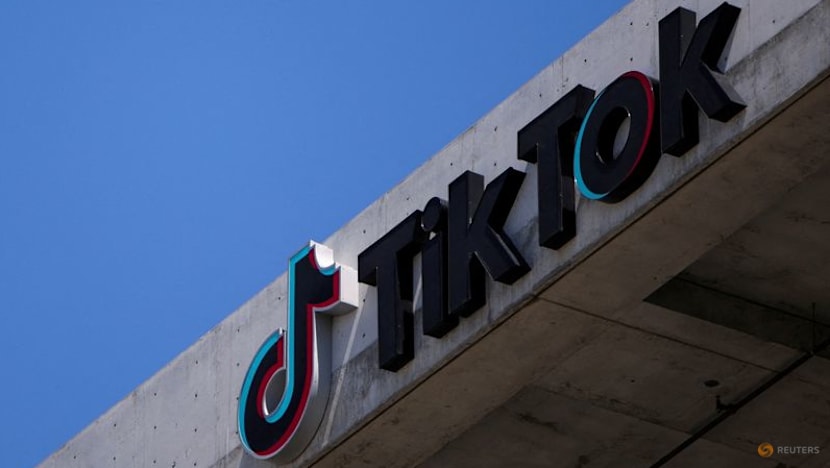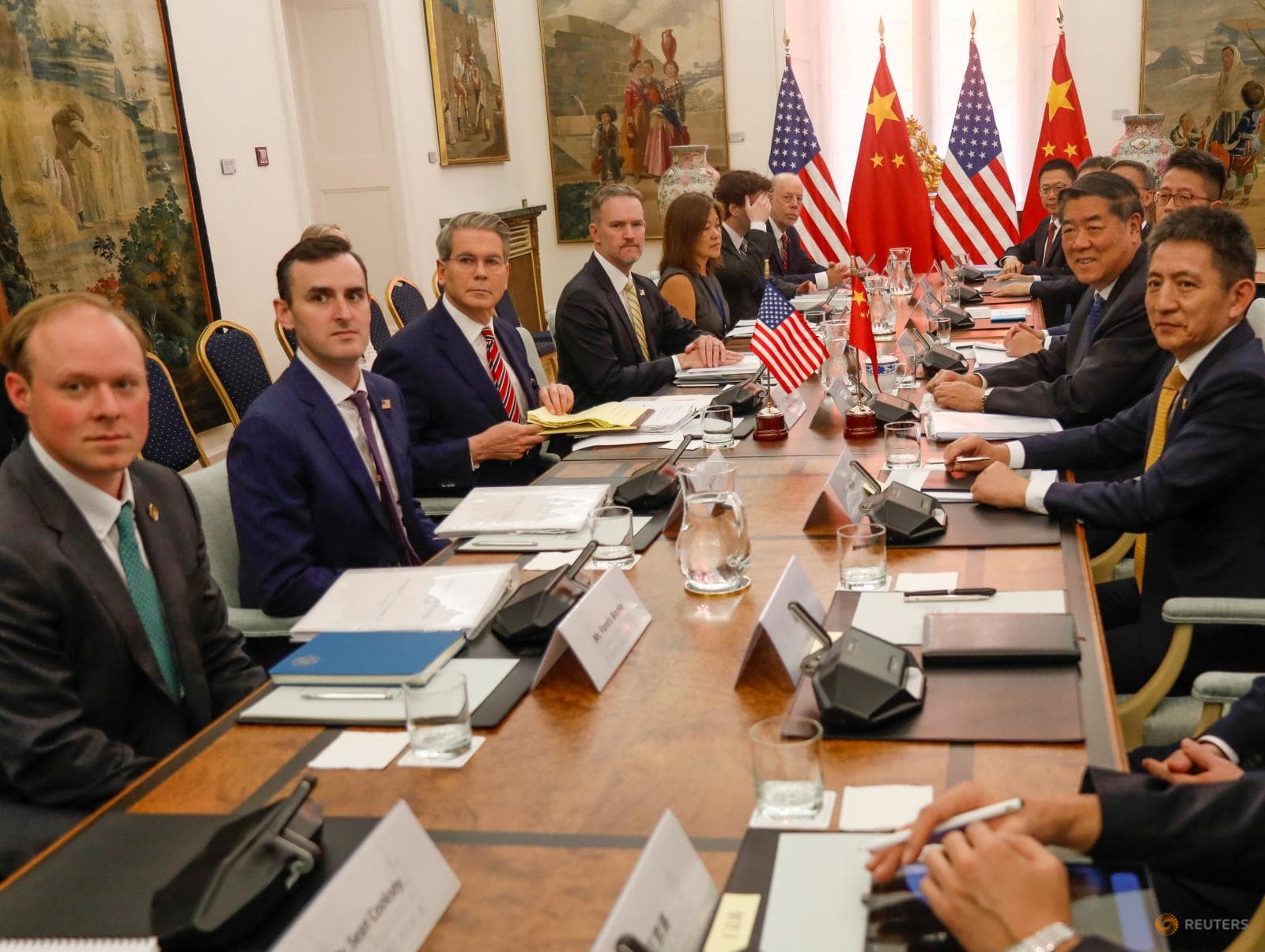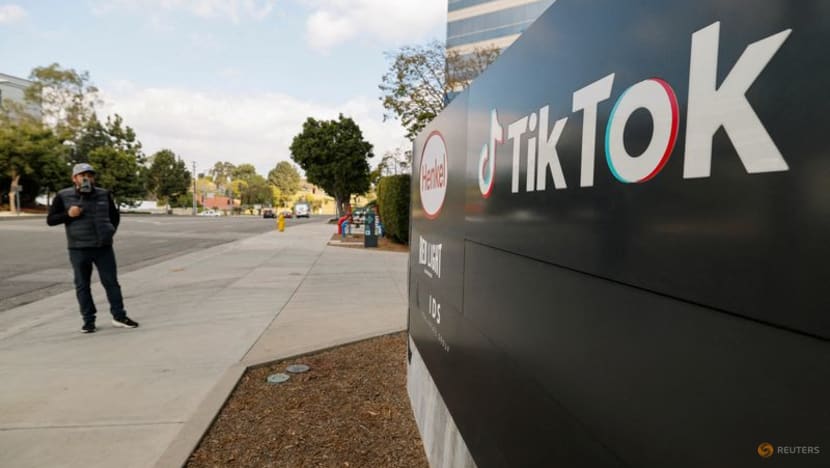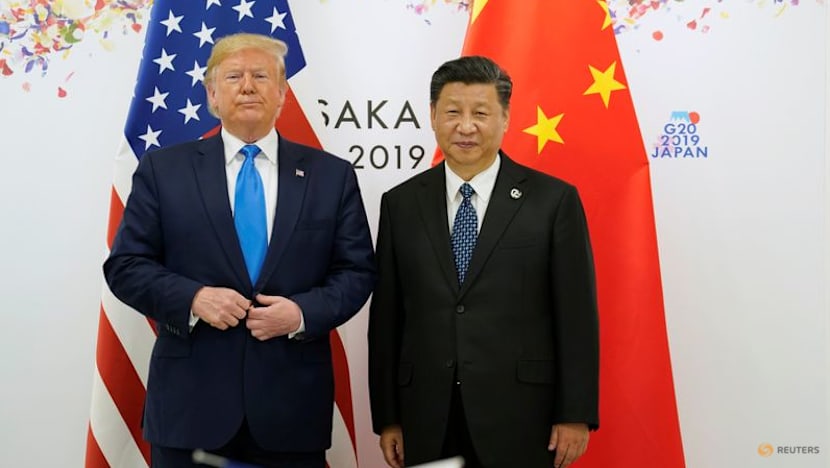analysis East Asia
US-China TikTok deal: Concession, compromise or calculated gambit by Beijing?
The tentative agreement, as outlined by US officials, would give American investors majority control of short-video platform TikTok’s US operations. China’s carefully calibrated response reflects a bid to preserve wiggle room in broader talks with Washington, say analysts.


This audio is generated by an AI tool.
BEIJING: Deal or no deal? A tentative agreement between the United States and China that would secure TikTok’s survival in the US by giving American investors majority control of the Chinese-owned app has been hailed by Washington as a strategic win.
But analysts say Beijing’s apparent nod - though carefully worded in deliberately vague terms and stressing that any deal remains subject to Chinese law - appears less a capitulation than a calculated bid for leverage in broader Sino-US negotiations.
“The tentative go-ahead for the deal is part of a broader framework that includes investment components beyond TikTok,” Sun Chenghao, a fellow at Tsinghua University’s Center for International Security and Strategy, told CNA.
“(It) shows that both superpowers are looking at the bigger picture and planning for the long term.”
Even as details remain unclear, some observers suggest a successful deal would go beyond a corporate reshuffle. Instead, it would signal that even amid intensifying rivalry, the world’s two biggest economies can still find room to negotiate.
Others warn that any perceived concession could alter power dynamics.
"Protecting ByteDance’s global revenue and influence is important," said Jonathan Ping, an associate professor at Bond University.
“But losing operational control could weaken China’s strategic leverage over culture and data, and indicate to other states the potential to request similar treatment.”
ONE DEAL, TWO NARRATIVES
Owned by Chinese tech giant ByteDance, TikTok has more than 170 million users in the US, roughly half the country’s population.
But its fate in the country has long hung in the balance, caught in a years-long tussle under both the previous Joe Biden administration and President Donald Trump’s two terms in office.
Lawmakers from both sides of the aisle have warned that Beijing could gain access to sensitive data or use TikTok to influence public opinion. China has consistently denied the claims.
These concerns culminated last year in a new law forcing ByteDance to divest TikTok’s US operations or face a nationwide ban.
It was Trump who initially pushed to ban the app in 2020 during his first presidency. Now back in the White House, he has recast himself as a defender of TikTok, repeatedly extending the deadline for a forced divestment.
The standoff appeared to reach a breakthrough on Sep 19, following a phone call between Trump and Chinese President Xi Jinping.
“Appreciate the TikTok approval,” Trump wrote on social media while also citing progress on other issues such as trade, fentanyl and the Russia-Ukraine war during their conversation.
Subsequent news reports citing US officials said the framework agreement would give American investors six of seven board seats in TikTok’s US arm, reducing ByteDance’s stake to no more than 20 per cent.
The reports said US user data would be housed on servers run by cloud infrastructure and software maker Oracle, retaining an arrangement put in place to address national security concerns.
“At minimum, TikTok has preserved its operations in the US,” said Sun.
“If TikTok had been forced to exit the US market entirely, or undergo a 100 per cent divestiture, that would have been the worst scenario. Now, China still retains some equity within the permitted range … that’s not a total loss.”
In contrast, Beijing has kept its messaging deliberately vague, offering no public details of the tentative arrangement regarding TikTok and stopping short of confirming that a deal has been struck.
According to a Chinese readout of the Trump-Xi call, Xi said the Chinese government “would be happy to see productive commercial negotiations in keeping with market rules lead to a solution that complies with China’s laws and regulations and takes into account the interests of both sides”.
The Chinese supremo also pressed Washington to “provide an open, fair and non-discriminatory environment for Chinese investors”.
Chinese officials have also framed the developments as part of broader economic and trade discussions, rather than a stand-alone concession.
Following US-China trade talks in Madrid in mid-September, Beijing’s readout of the discussions acknowledged TikTok as a key issue alongside other trade-related matters.
The readout referred to a “framework agreement” that covered investment and other issues, suggesting that TikTok is just one component of a larger package still under discussion.
This careful framing suggests Beijing wants to preserve room for manoeuvre - keeping TikTok within a bigger basket of bargaining chips in the wider relationship with Washington, said Sun.
Beyond TikTok, Washington and Beijing remain at odds over a raft of issues ranging from tariffs and semiconductor export controls to access to rare earths and market reciprocity.
“The official line underscores two points Beijing has been keen to emphasise: that TikTok’s fate remains ultimately subject to Chinese law, and that the government does not view the matter in isolation, but as part of the broader climate for Chinese companies abroad,” he said.
By framing the issue around fairness and reciprocity, Xi’s remarks also signal that China expects the deal to be read not just as a corporate restructuring, but as a test of how the US treats foreign investors, he added.

CONCESSION, COMPROMISE OR CALCULATED GAMBIT?
If finalised, the TikTok deal would likely be the first known high-profile case of a Chinese company ceding majority control of its US operations under regulatory pressure.
While other Chinese firms such as Huawei and ZTE have faced bans and sanctions in the US, they were never required to surrender ownership stakes.
So why would Beijing accept such an outcome, and what does it stand to gain?
Some analysts see the tentative deal as Beijing bowing to US pressure, while others view it as a pragmatic compromise to preserve TikTok’s access to its biggest overseas market. Still others see it as a strategic play to gain leverage in wider negotiations with Washington.
A successful deal would underscore how Washington used national security laws to compel structural change, something Chinese firms have not previously faced at this scale, said Ping from Bond University.
“A deal, if materialised, demonstrates China’s willingness to compromise under regulatory pressure. US investor control over TikTok-US, however, implies a loss of Chinese Communist Party influence over the (app’s) algorithm and user data, weakening its soft power and strategic leverage,” he told CNA.
US officials have warned that under China’s broad national security and intelligence laws, Beijing could legally compel ByteDance to hand over TikTok user data. Chinese authorities and ByteDance have repeatedly denied these claims.
“At the extreme, it’s losing useful spyware, a component of its grey zone warfare, and data to train its AI projects,” Ping said.
He noted that the reported deal framework can be interpreted either as a concession by Beijing on technological sovereignty, or as a calculated move to safeguard TikTok’s US market access and revenue while limiting damage to broader trade negotiations.
Still, analysts cautioned that the eventual outcome may hinge on what else is folded into the broader framework deal, much of which remains under wraps.
“The issue is already part of the larger trade negotiation context. So we can’t look at it in isolation. It may be linked to gains in other areas,” Sun from Tsinghua University said.
But since we don’t yet know what else is in the package agreement, we can’t assess that. So I think it’s too early to conclude China is losing out,” he added.
Trump is set to sign an executive order on the TikTok deal later this week, which may shed more light on the specifics of the arrangement and how it fits into the larger trade context.

For Beijing, the most immediate benefit of a deal is that TikTok avoids a nationwide ban in its largest overseas market.
While TikTok does not disclose country-level revenue, third-party estimates suggest that the US accounts for roughly 30 per cent of the platform’s in-app revenue, according to a report by US news outlet Barron’s, citing data from analytics firm Sensor Tower.
Preserving access to the US ensures not only continued revenue streams but also maintains ByteDance’s visibility in a market that is otherwise closed to most Chinese technology firms, said analysts.
The symbolic value is also significant.
TikTok has long been seen as a rare success story of Chinese tech going global, and maintaining a foothold in the US market allows Beijing to showcase that success at a time when other Chinese apps, such as WeChat and Weibo, have faced significant legal hurdles and restrictions on their operations, said Sun.
Trump took aim at WeChat during his first presidency, signing an executive order in 2020 seeking to ban it from US app stores, although the measures were later blocked in court.
Meanwhile in May this year, Weibo was among a list of Chinese companies singled out by several US lawmakers, who urged the country’s securities regulator to delist them over national security concerns, the Financial Times reported.
In addition, a minority stake and licensing rights still give ByteDance some role in operations and revenue, even if control is limited, Sun added.
In a brief statement on its official WeChat account on Sep 20, ByteDance said it would “advance relevant work in accordance with Chinese legal requirements, so that TikTok US can continue to serve the majority of US users”.
Analysts said while TikTok’s restructuring could weaken China’s direct influence over one of its most successful global platforms, it may also be a pragmatic way to protect market access, preserve revenue streams and keep the door open for future leverage in US-China negotiations.
Should China approve ByteDance ceding majority control of TikTok’s US arm, it would amount to Beijing accepting limits on its influence over the platform’s data and algorithms - areas Washington has long flagged as national security concerns, analysts said.
But Tsinghua University’s Sun pushed back against the view that this represents a loss of technological sovereignty, stressing that it is being handled as a state-level issue.
“It's more about both sides trying to find a solution … the US is emphasising that an agreement on TikTok has been reached, but other issues may still be under negotiation,” he said.
Ping from Bond University noted TikTok’s unique position at the intersection of economics, politics and security.
He highlighted that the short-video platform is a commercial prize, with billions in revenue and global reach. “(This makes) control over its operations a strategic business, as acknowledged by President Trump,” he said.
At the same time, TikTok’s popularity and influence, particularly with younger users, make it a potent tool in global geopolitical competition, Ping added.
He said this duality reflects Beijing’s dilemma between safeguarding sovereignty and ensuring continuity for its companies overseas, adding that it boils down to whether economic continuity or sovereignty is prioritised.
“It would be a pragmatic compromise to preserve TikTok’s access to the US market and avoid a ban. (For) China, however, the loss of control, weakening influence over a globally strategic platform, would be a disaster,” said Ping.
Chong Ja Ian, an associate professor at the National University of Singapore (NUS), said that Beijing is well aware of TikTok’s influence, including its role as a political tool.
“Trump, for instance, has used TikTok to reach out to followers and to campaign,” Chong said, adding that the platform also serves as a “symbolic demonstration” of the success of China-origin technology in the highly competitive US market.
Still, Chong said Beijing recognises the app as ultimately just one phase in a wider innovation cycle.
“While TikTok is popular at the moment, there will always be new products. Understanding a market, especially a large one like the US, can allow for the development of the next major product,” he said.
IMPLICATIONS ON SINO-US TIES
Even if a TikTok deal materialises, ironing out the fine print of implementation will take time. Still, such an agreement would carry implications far beyond the app itself, analysts said.
For Washington, it demonstrates how national security laws can be used to reshape foreign firms operating on US soil. For Beijing, it shows that dialogue remains possible, even in an environment of deep mistrust.
Tsinghua University’s Sun said a confirmed deal reflects a shift towards greater stability in the bilateral relationship compared with earlier years of confrontation. He noted that both sides now have incentives to manage tensions more carefully, especially ahead of top-level meetings.
Trump has said he will meet Xi during the APEC summit in South Korea from Oct 31 to Nov 1, although Beijing has not formally confirmed the Chinese leader’s attendance. If it goes ahead, the meeting would mark their first face-to-face encounter since the 2019 G20 summit in Osaka.

Trump has also hinted at plans to visit China in early 2026, and multiple media outlets have reported that Beijing has already extended a formal invitation, citing sources familiar with the matter.
“I think compared with before, the situation has eased somewhat. Channels of communication have reopened. Expectations are high for meetings between the two leaders, and Trump is expected to visit China early next year,” Sun said.
“So both sides will likely try to make positive gestures ahead of those meetings, to improve relations.”
Referring to the closed-door discussions between US and China negotiators during recent rounds of talks, Sun said that such private negotiations reflect how both sides have built up “more structured communication channels”.
“So I think from the leadership level down to working-level contacts, relations now are clearly more stable than when Trump first took office, when both sides were locked in tit-for-tat confrontations.”
A TikTok deal would show how the world’s two largest economies can still negotiate differences and find common ground when it suits their interests, said NUS’ Chong, though he cautioned that such arrangements are unlikely to extend beyond the two powers.
“There is some obvious compromise between the United States and PRC (People’s Republic of China) in this case. That said, these are the two largest economies in the world, negotiating on behalf of huge corporations. The leverage they have is not going to (be) available to most other states, or corporations without the same type of state backing,” he said.
At the same time, Ping from Bond University warned that a successful deal could set a precedent, emboldening major powers to adopt more heavy-handed measures to protect their interests as tech rivalry intensifies.
“Emboldened states may impose stricter controls on foreign technology companies, knowing concessions are possible,” he said.
“The outcome could encourage more protective policies, especially in sensitive sectors like data and AI, potentially accelerating the breakdown of a unified global tech ecosystem into regional blocs, marking a shift to containment.”


















